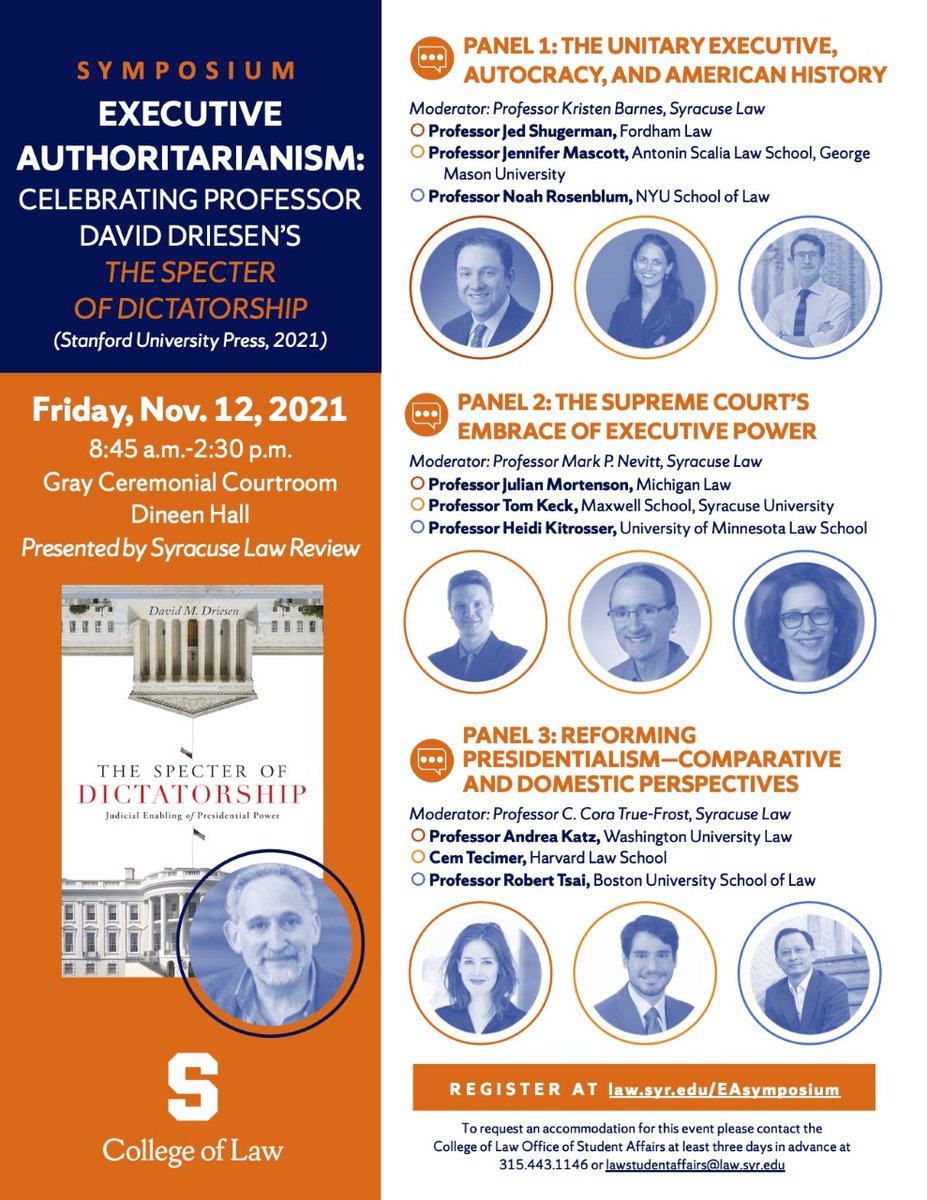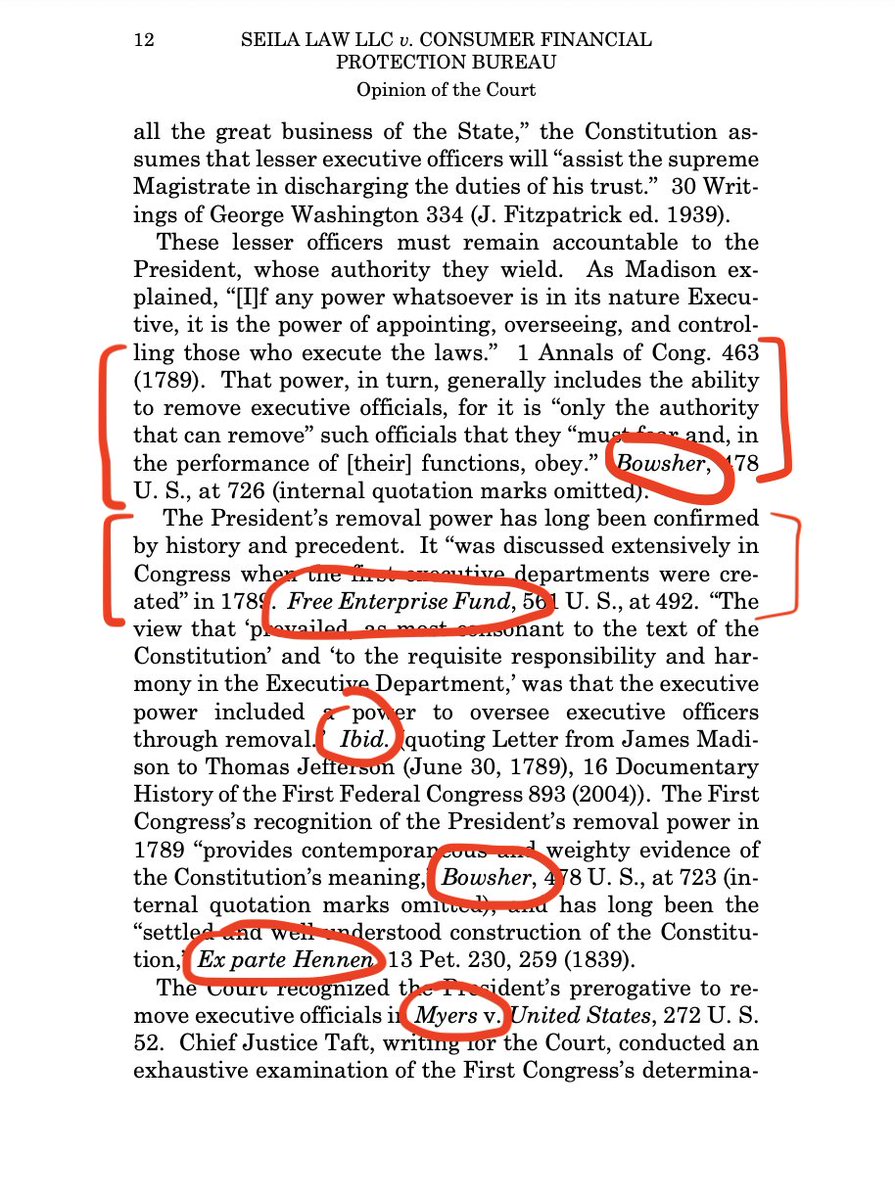
Likely the most significant oral argument in years (Dobbs) is happening right now, and Mississippi's lawyer is already making patently ridiculous arguments:
Abortion rights are the only rights implicating life and death?? Hello death penalty?
supremecourt.gov/oral_arguments…
Abortion rights are the only rights implicating life and death?? Hello death penalty?
supremecourt.gov/oral_arguments…
Right now in Dobbs at 11:22:
You can't read too much in these tea leaves... but it sure sounds like Justice Kavanaugh is practicing, reciting many examples of overturning precedents, and sounding out an opinion (and a 5th vote) to overturn Roe and Casey.
You can't read too much in these tea leaves... but it sure sounds like Justice Kavanaugh is practicing, reciting many examples of overturning precedents, and sounding out an opinion (and a 5th vote) to overturn Roe and Casey.
I heard CJ Roberts's questions around 11:05 this morning the same way:
Practcing or signaling a willingness to overturn precedents (i.e., Roe).
With caveat that Justices are often trying out arguments, the tone from Roberts and Kavanaugh seemed a hint against Roe/stare decisis.
Practcing or signaling a willingness to overturn precedents (i.e., Roe).
With caveat that Justices are often trying out arguments, the tone from Roberts and Kavanaugh seemed a hint against Roe/stare decisis.
FWIW, back in 2018, @Dahlialithwick and I read these tea leaves - and Kavanaugh's own speeches and transcripts in 2017-2018 that signaled his views against Roe, got him onto the @FedSoc shortlist, and ultimately the nomination:
slate.com/news-and-polit…
slate.com/news-and-polit…
CJ Roberts asks how anyone significantly relies on whether the line is 15 weeks or 24 weeks.
The message is that there is no reliance bright line on any magic number of weeks. His tone is assertive, invoking Ely.
This is an even clearer signal the line will move. Unclear on Roe.
The message is that there is no reliance bright line on any magic number of weeks. His tone is assertive, invoking Ely.
This is an even clearer signal the line will move. Unclear on Roe.
Gorsuch asks if there is any alternative line other than viability.
SG Prelogar gives a good answer: Viability is workable, has been workable for decades, and it's the only workable line.
SG Prelogar gives a good answer: Viability is workable, has been workable for decades, and it's the only workable line.
Kavanaugh keeps trying out arguments against Roe/Casey:
If Constitution is unclear, why not judicial restraint, defer to states... defer to Congress.
Remember that: "Defer to Congress." The only recourse is a reproductive rights statute.
But that's why Roe is key...
If Constitution is unclear, why not judicial restraint, defer to states... defer to Congress.
Remember that: "Defer to Congress." The only recourse is a reproductive rights statute.
But that's why Roe is key...
If the Court leaves Roe on the books, then there is a basic right to abortion under the 14th Amendment, SECTION 1.
Then Congress can pass a "congruent & proportional" statute to protect that right under the 14th A. SECTION 5.
But if the Court overturns Roe/Casey, no 14th Sec. 5.
Then Congress can pass a "congruent & proportional" statute to protect that right under the 14th A. SECTION 5.
But if the Court overturns Roe/Casey, no 14th Sec. 5.
• • •
Missing some Tweet in this thread? You can try to
force a refresh






